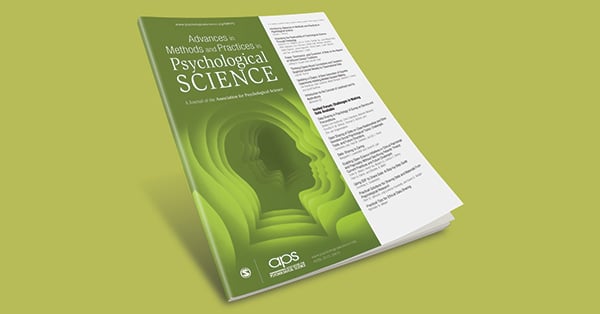
Experimental Philosophy
@xphilosopher
Followers
20K
Following
20K
Media
738
Statuses
8K
Experimental philosophy: An interdisciplinary field that uses the collection of empirical data to shed light on philosophical issues.
Joined March 2009
Core idea: A generic about X doesn’t have to say anything about the essence of X. It can say something that only holds in a specific context But even then, it has to say something that is *stable*. Something that isn’t just a coincidence about how things happened to turn out
0
0
3
“Students arrive each day at 2:15 pm” This sentence is what’s called a GENERIC… but it doesn't even purport to be saying anything about the nature of students. What then makes it generic? New theory from @kateritch and @NyVasil
https://t.co/v88SiLdZuV
philpapers.org
1
1
6
New experimental paper on intuitions about whether people have obligations *to themselves* From philosopher Laura Soter (@laura_soter) in JPSP https://t.co/6Yw6ZFU6lr
1
16
106
New journal in experimental philosophy!
0
3
5
“Murder is wrong, but I don’t disapprove of it” Expressivist theories of moral language suggest that this sentence should make no sense — but a new paper in Cognition finds that people actually *do* find this sentence largely acceptable https://t.co/WWP11hMP0K
1
10
43
The new journal EXPERIMENTAL PHILOSOPHY will soon be accepting submissions!
The journal's homepage is now live: https://t.co/3MfOV5bxcM We will soon also be found under https://t.co/8SCYvV37S5. Accepting submissions in about 2 weeks.
1
9
24
Multilab replication study fails to find result in induced compliance paradigm, long seen as core evidence for the theory https://t.co/oJawRA3zCR
journals.sagepub.com
According to cognitive-dissonance theory, performing counterattitudinal behavior produces a state of dissonance that people are motivated to resolve, usually by...
1
0
7
Results from the most well-known dissonance experiment are mathematically impossible (To get the intuition behind this analysis, imagine that we take the mean of 10 Likert scale scores. It would be impossible for that mean to be .285) https://t.co/I1kG7Gw4Ej
1
0
8
There’s growing evidence that something was going very seriously wrong in the classic early work on cognitive dissonance Latest revelation is that the story of When Prophecy Fails was fabricated in fundamental ways More below H/T @mbialek82
The fall of "When prophecies fail": Another social psychology classic turns out to be based on fabrications and lies. In 1954, Dorothy Martin predicted an apocalyptic flood and promised her followers rescue by flying saucers. In “When Prophecy Fails “ (1956), the
3
5
25
This careful, incremental science is the very opposite of a traditional model of what it means to be an intellectual But this more ‘bureaucratic’ approach is giving us real insight - showing in many cases that the more profound-seeming intellectual ideas are simply not true
2
0
5
I can see how someone might see this work as ‘bureaucratic,’ but if so, it is bureaucratic in the best way Researchers on opposite sides of this debate decided to work together in an ‘adversarial collaboration’ that would focus on just letting the data decide
1
0
5
I appreciate this essay, but I see things differently Much of the empirical work she points to strikes me as deeply valuable — as exactly what this discourse needs Take her remarks about the @ShaunaBowes1 study on whether people on the right are more psychologically rigid
1
0
3
English prof @anecdotal on the ever-growing role of quantitative empirical studies in the discourse about identity politics. She sees this as a shift to “bureaucratic” approach I��m curious to hear what people think
1
1
7
We judge many behaviours as praise- vs blame-worthy based on the value of a continuous quantity (eg reaction time). Research by @dhbostyn & @xphilosopher finds we do not judge this based on a statistical norm, but on the behaviour’s perceived frequency: https://t.co/Se9AU9qBN5
0
3
4
There’s a new job announcement on the X-Phi Blog: @eugen_fischer is looking for a 6-month Research Associate to work in the research project »Experimental argument analysis«. Check it out at https://t.co/TlOE8MxCd3!
#xphi #philosophy
0
3
5
It has long been thought that there is a special connection between agency and causal judgment But it turns out the effect of agency arises not just for causal verbs but also for non-causal verbs like “touch” @SehrangJoo @sami_r_yousif @aprettyaday
https://t.co/ylredT8FdC
0
1
9
People rarely use the word “cause,” but strikingly, young children already understand the difference between “Jane caused…” and “Jane broke…” @tobigerstenberg
https://t.co/AlD9c14PBs
1
0
5
Now consider cases of what philosophers call “double prevention” In these cases, people respond very differently to sentences like “Jane caused…” vs. sentences like “Jane broke…” https://t.co/gEDRtGLCiy
1
0
3
Consider whether it’s better to use a sentence like “Jane broke the glass” to describe an action or an omission Turns out that in ‘disjunctive’ cases, people think these sentences are more appropriate for omissions than for actions (!) @paul_henne
https://t.co/w784CeOwsP
1
0
3
There’s a deep difference between sentences like: (1) Jane caused the glass to break. vs. (2) Jane broke the glass. A surge of experimental philosophy research has led to some surprising discoveries about sentences like (2) [Thread]
2
5
18






